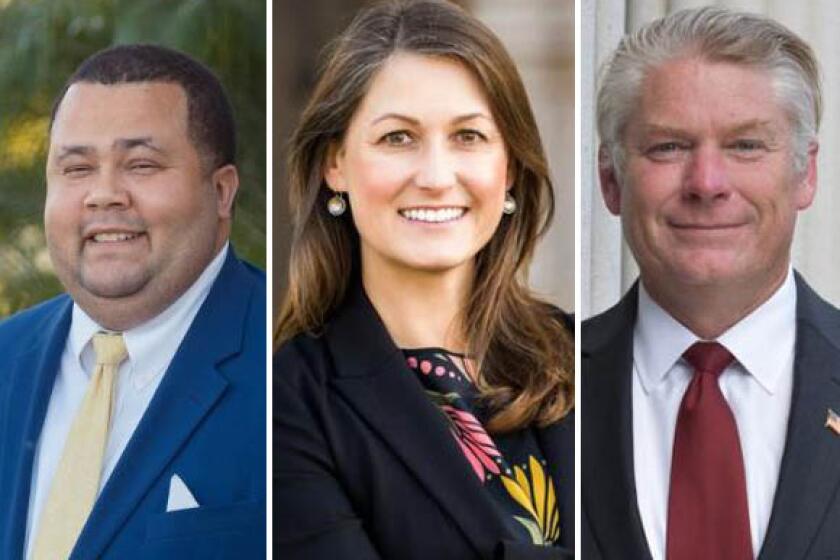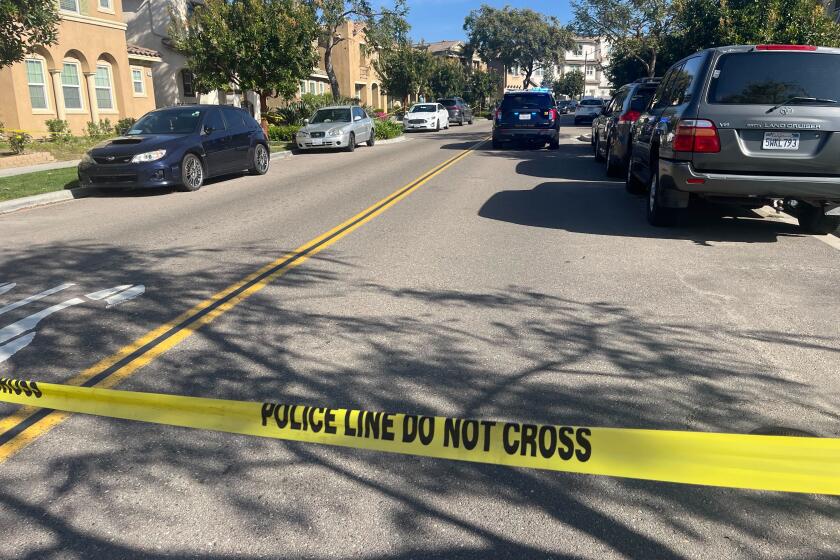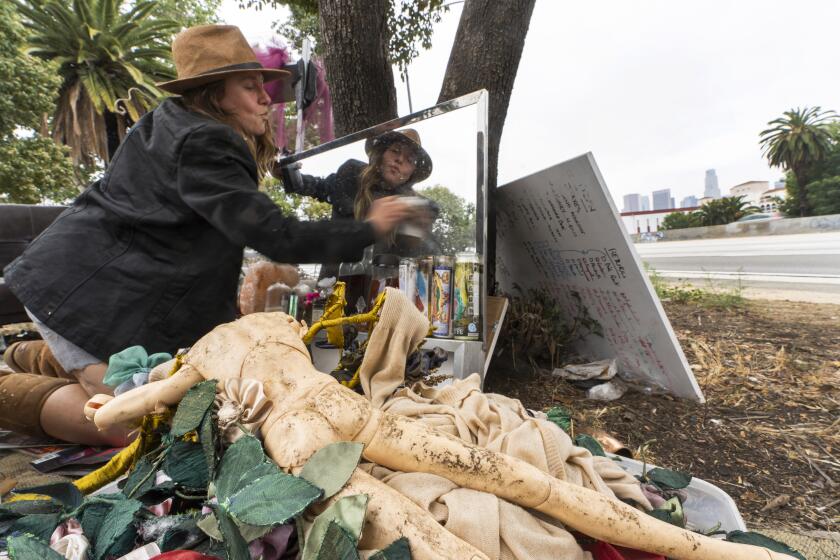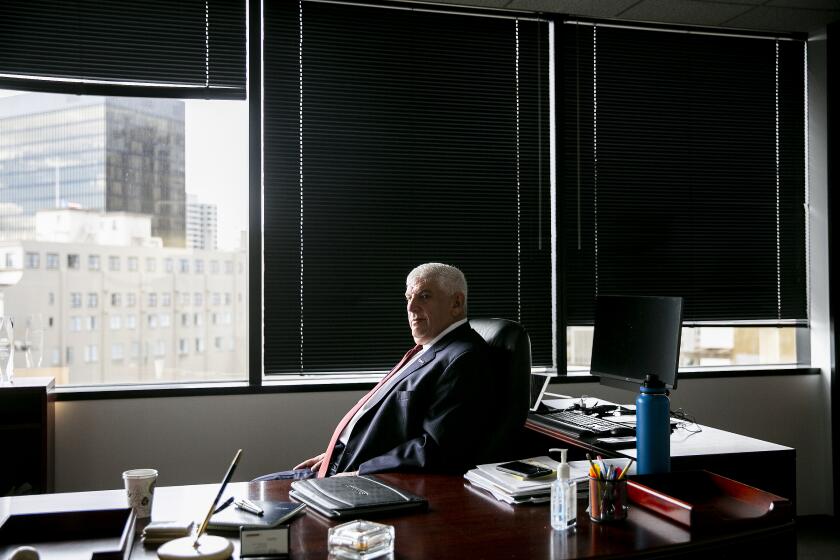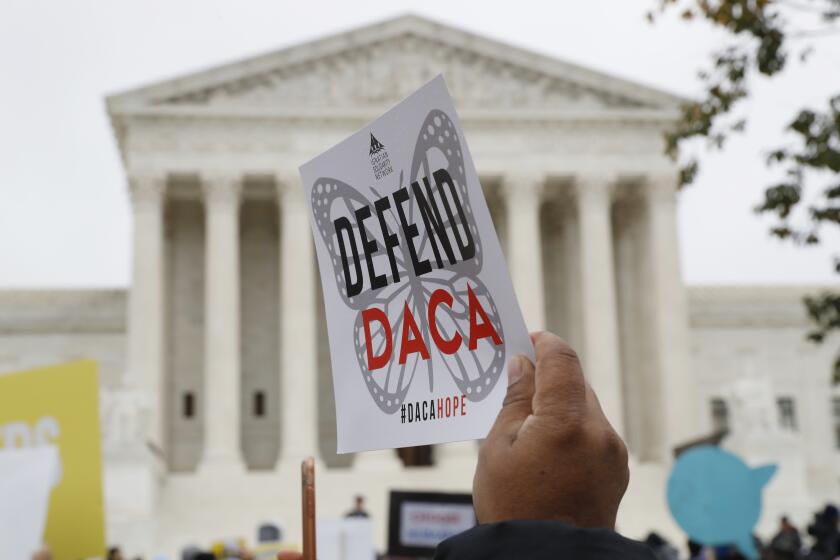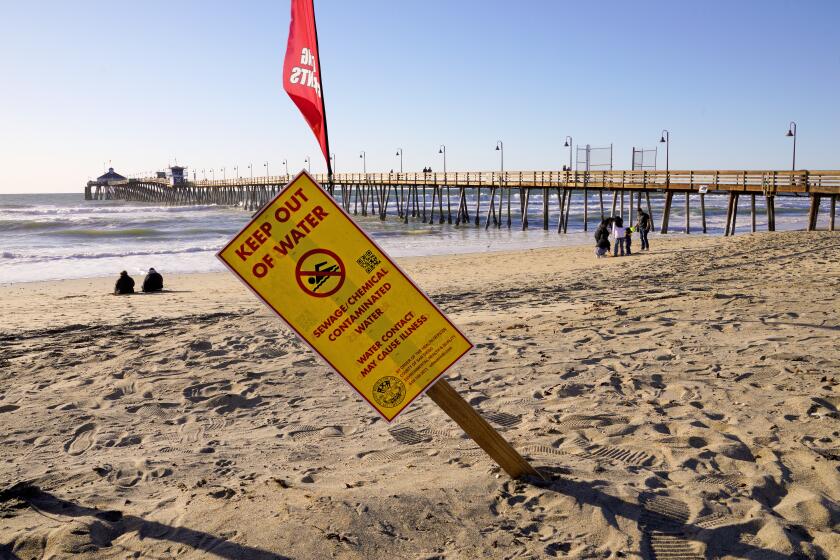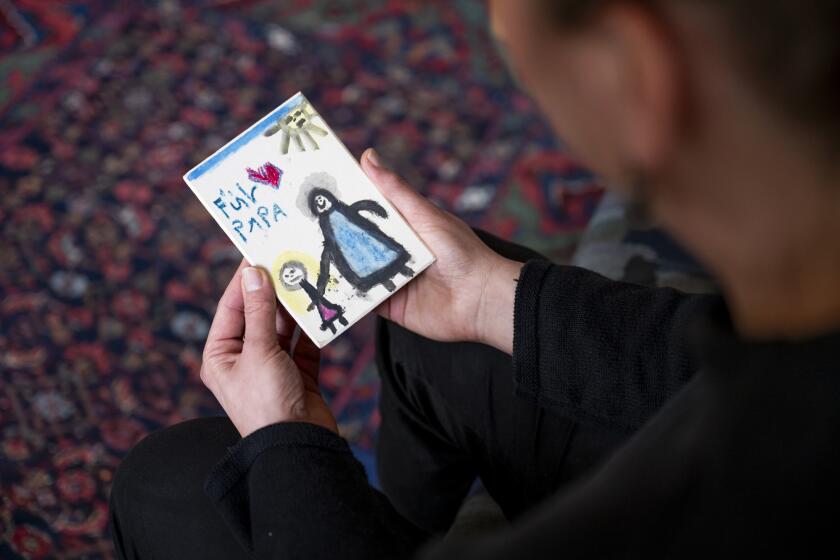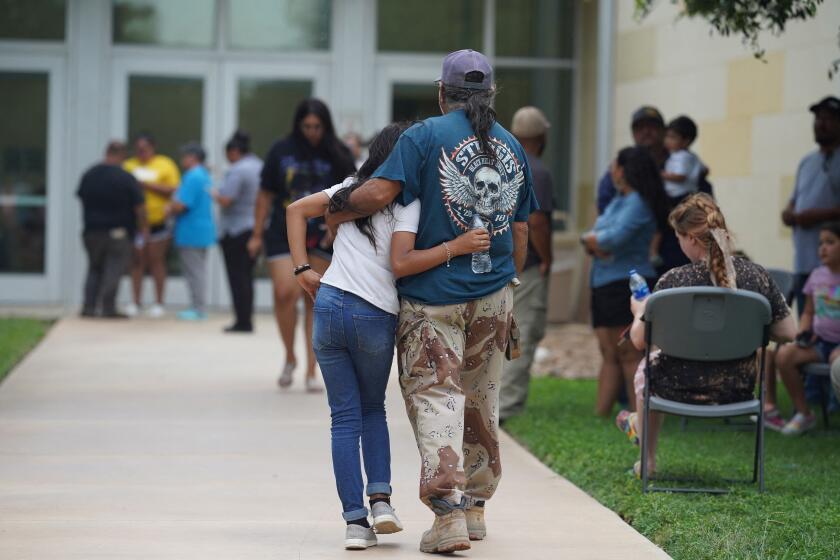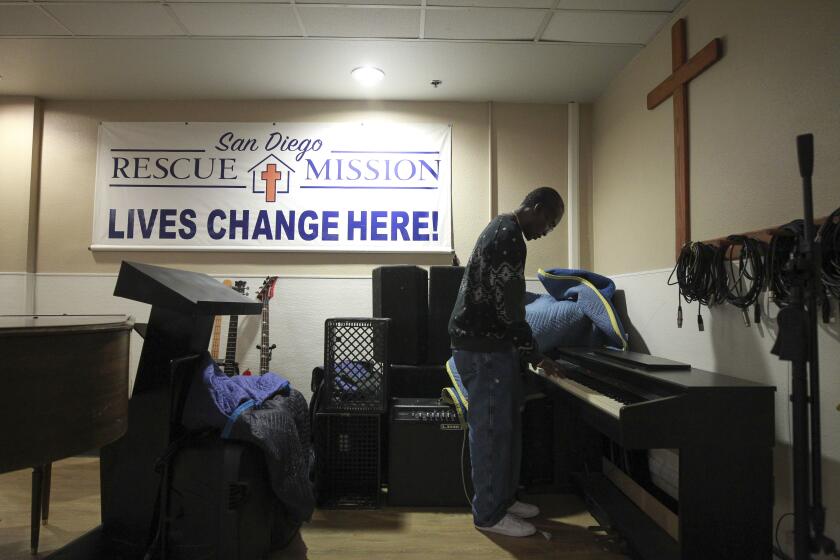2022 election: Q&A with Mike Murphy, candidate for Superior Court Judge, Office 35
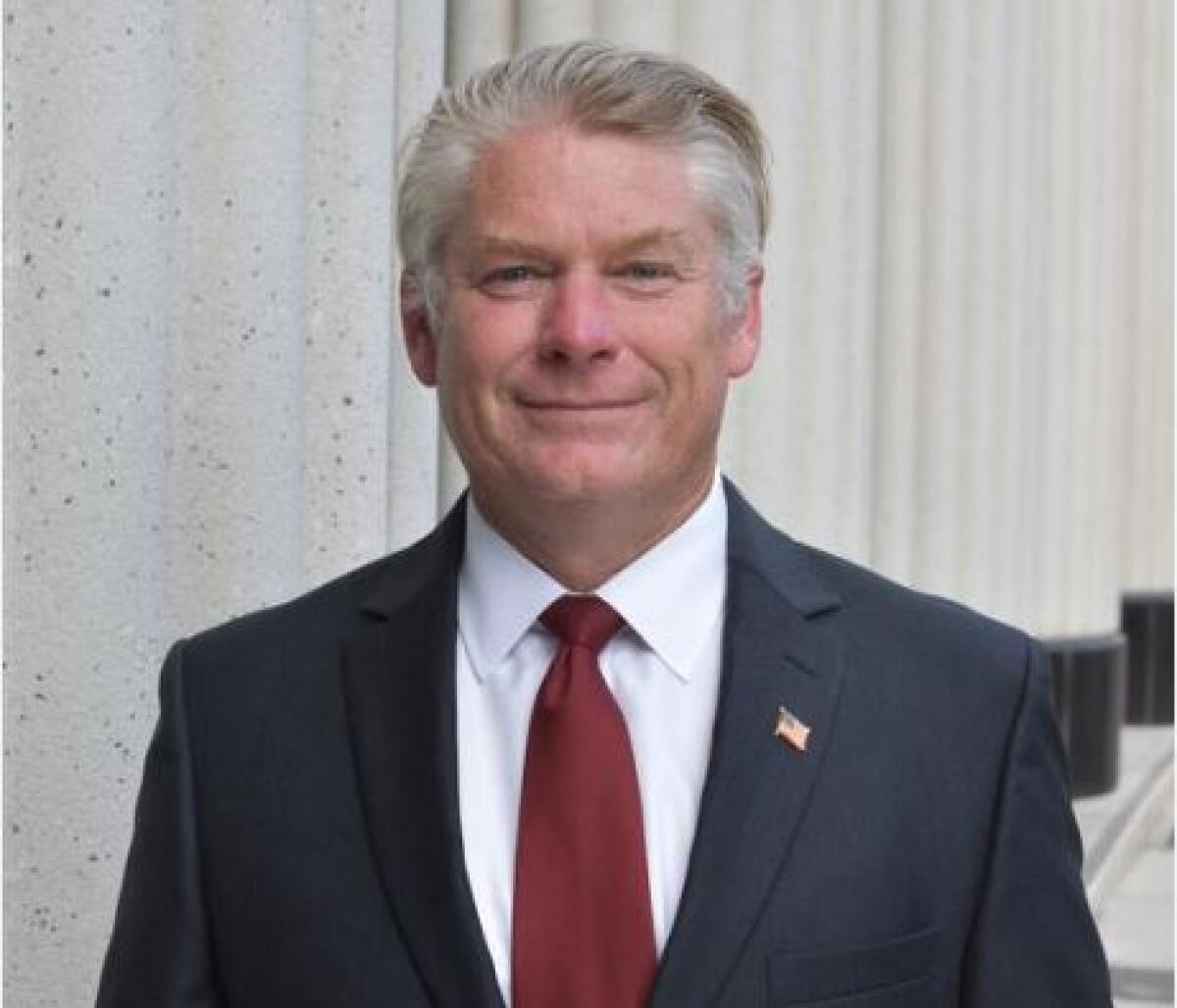
There are three candidates for San Diego County Superior Court judge Office No. 35 on the June 7 primary ballot. They are San Diego County Deputy Public Defender Michael Flemming, Assistant U.S. Attorney Rebecca Kanter and Deputy Attorney General Mike Murphy. The top two vote-getters will advance to a Nov. 8 runoff election.
The San Diego Union-Tribune Editorial Board sent all candidates a six-question survey. If you have comments or questions about the election or any of the candidates after reading this interview, please email Editorial and Opinion Director Matthew T. Hall at matthew.hall@sduniontribune.com.
Below are Murphy’s responses and a link to the other responses.
Q: Please explain your legal background and why you are qualified to be a judge.
A: I have served as a criminal prosecutor with the California Department of Justice for over 25 years. During that time, I have litigated cases in the California Superior Court (our trial courts), the California Court of Appeal and the California Supreme Court, as well as in federal courts.
My experience in Superior Court has given me a practical knowledge of all aspects of trial work and state trial court procedures. I know how we conduct arraignments, preliminary hearings, motions, trials and sentencings. I also know California’s substantive and procedural rules, such as the California Evidence Code, statutory speedy trial rules, sentencing laws, and the numerous other rules and procedures that Superior Court judges must apply every day.
My experience in our appellate courts has provided me additional knowledge and insight beyond what can be learned from trial work. I know how judgments are attacked on appeal and how to prevent them from being reversed. And I have a deep knowledge and understanding of legal issues from having extensively researched, written and argued in our higher courts about constitutional law, California statutory law and the rules of evidence.
In short, my long career of prosecuting cases in our trial courts and learning about the law while defending convictions on appeal has provided me the experience and insight into our laws and legal system necessary to be an effective judge.
Michael Flemming, Rebecca Kanter and Mike Murphy are running for San Diego County Superior Court judge on the June 7 primary ballot in Office No. 35.
Q: Why are you seeking this position?
A: I have dedicated my career to seeking justice for crime victims and protecting the rights of the accused. I have seen firsthand the devastating effects of violent crime on individuals’ lives. I have also learned about the personal histories of those accused of crime, and seen how their stories are often a tale of neglect, abuse and adversity. Judges make decisions that can have a direct and positive impact on the lives of all the people who appear before our courts. I am running for judge to continue my public service in a position where I can do the most good for the most people, and I possess the legal knowledge, temperament and good judgment to make fair and just decisions.
Q: What is your judicial philosophy? What are the guiding principles that will shape your rulings or beliefs as a judge?
A: To my mind, there is only one legitimate “judicial philosophy,” and that is to fairly and justly apply the law as written to the facts proven in the case. These are the principles that will guide my decision-making. Having any other “judicial philosophy” leads to result-oriented decisions in which a judge’s individual philosophy shades his or her decisions. That is dangerous, produces unfairness and is a rebuke to the legitimate law-making prerogatives of the voters, the Legislature and the higher courts.
Q: When do you think it’s appropriate to limit cameras or audio recorders in the courtroom? Post-pandemic, do you think virtual hearings should continue, and under which circumstances?
A: I am a strong advocate for and defender of the right of the people to witness their justice system firsthand and of the press to cover and report on it by audio and video recording. Therefore, my default position would be to allow cameras and audio recording in the courtroom, subject to the Rules of Court and California statutes. The one limit I would impose is when cameras or audio recordings would impair the fairness of the proceedings or impose an intolerable burden on parties, witnesses or jurors, such as with child or sexual assault witnesses and victims.
I believe virtual hearings can be an important ongoing mode of executing the functions of our justice system. This technique has proved to save time and expense and minimize inconvenience to both private and government parties and the courts, all without adversely affecting the quality of justice delivered or effecting judicial fairness and accountability. A mixed system of publicly accessible live and virtual hearings can be developed to achieve savings while ensuring fairness, integrity and accountability. The vast majority of judicial proceedings are “routine” and strictly procedural. In such circumstances, virtual hearings can serve as an important forum.
Q: Has your view of the criminal justice system changed since the racial reckoning that followed the death of George Floyd in 2020? If so, how?
A: My view of the criminal justice system was formed sitting at the knee of my father, a prosecution and defense attorney, my education at San Diego State University and University of San Diego Law School, and my 25 years in the Attorney General’s Office impartially prosecuting offenses, including offenses by peace officers against citizens, all before the tragic death of George Floyd in 2020. So that tragedy did not so much change my view of the criminal justice system as underscore the critical need for law enforcement training, transparency and accountability, and the absolute need for vigorous and valiant pursuit of those in positions of power when they abuse that power.
Q: Why should voters choose you over your opponents in this election?
A: We are running for a state court position. One of my opponents is a federal prosecutor who works in the federal courts applying federal law. My other opponent is a deputy public defender who defends individual clients on a case-by-case basis. While their work and experiences are needed and honorable, I have had the opportunity to spend my entire career working in the state criminal justice system on an institutional basis in the highest law office in the state, and I have worked in the state courts at all levels. As such, I possess significantly more relevant experience than my opponents.
I am the only candidate endorsed by law enforcement organizations, including the San Diego County Deputy Sheriff’s Association, the San Diego Police Officers Association, the San Diego County Probation Officers Association, the Peace Officers Research Association of California, the San Diego County Deputy District Attorneys Association and San Diegans Against Crime.
Finally, I am the only candidate who is a native of San Diego and has a lifelong connection with our institutions, communities and citizens. I attended St. Augustine High School, San Diego State University and the University of San Diego School of Law. I have raised four kids here and contributed to our communities in various ways, including coaching youth sports, sitting on school site councils and serving Thanksgiving dinners at the United Service Organizations to members of the armed forces and their families.
We provide this platform for community commentary free of charge. Thank you to all the Union-Tribune subscribers whose support makes our journalism possible. If you are not a subscriber, please consider becoming one today.
Get Weekend Opinion on Sundays and Reader Opinion on Mondays
Editorials, commentary and more delivered Sunday morning, and Reader Reaction on Mondays.
You may occasionally receive promotional content from the San Diego Union-Tribune.
